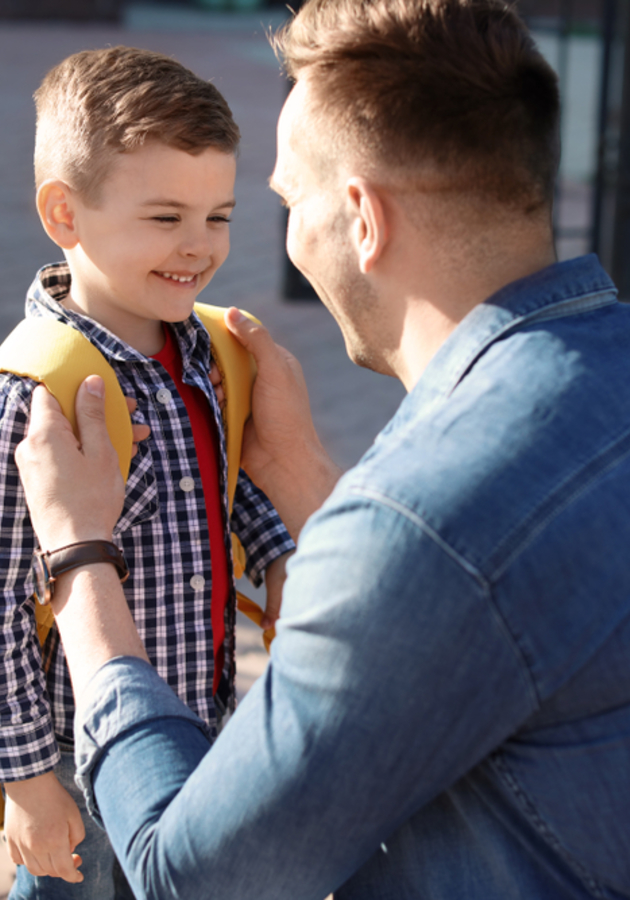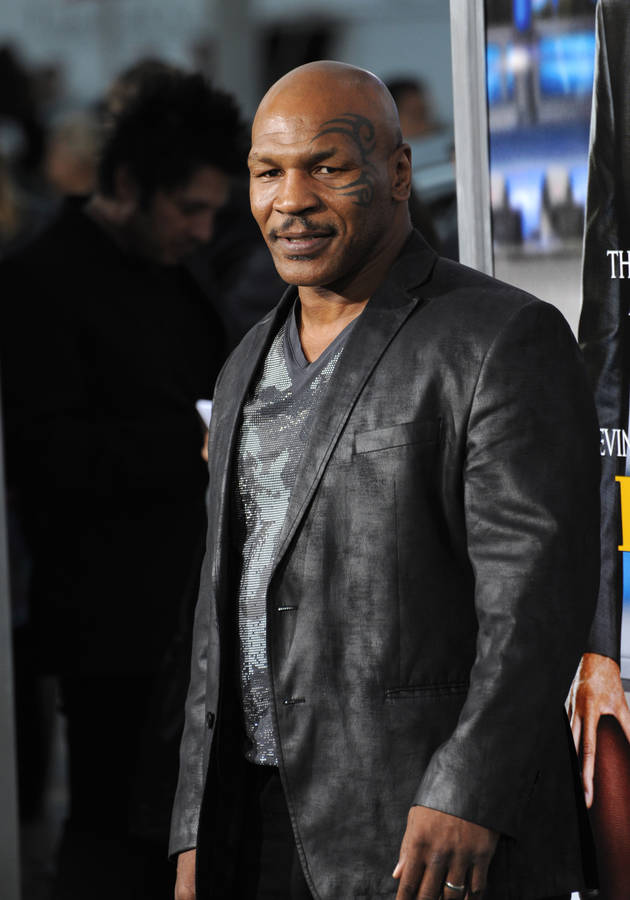Endorsed by Oprah as “one of the most profound books on parenting she has ever read,” “The Conscious Parent” by Dr. Shefali Tsabary is neither a how-to guide on raising good children nor another step-by-step manual to overcoming the usual challenges of parenthood. It is, instead, a book which attempts to redefine traditional childrearing by illuminating how parents can “capitalize on the emotional and spiritual lessons inherent in the parenting process” so that they can use them for their own development which, in turn, should help them parent more effectively.
In other words, whereas most parenting books aim to help parents control their children, “The Conscious Parent” aims to help parents control themselves. So, get ready to learn why the best way to help your children is by helping yourself and prepare to see your sons and daughters as you never have before.
The essence of conscious parenting
You need a license to buy a dog, drive a car, and even catch a fish; but they’ll let just anyone be a parent. So says a character played by Keanu Reeves in the 1989 Ron Howard comedy, “Parenthood.” Nothing has changed since: anyone can bring another human being into the world, but not everyone can raise this being into a healthy and fully functioning individual.
Extremes aside, it seems most of us see parenting as something we should be able to do by instinct. As a result, we spend thousands of hours learning new languages and advancing our careers, and virtually not one minute learning how to parent consciously. Why is this so? Why do heads of billion-dollar organizations craft carefully considered mission statements, and parents are not required to have a parenting philosophy? Why are aspiring entrepreneurs frequently advised to identify their strengths and weaknesses so that they can capitalize on the former and minimize the impact of the latter, and parenting books abound with “clever techniques for control and quick fixes for dysfunction”? In a sentence, why do we live “conscious” business lives, while parenting “unconsciously”?
There are many answers to these questions, but it’s even better if you consider them to be rhetorical. The point is simple: if you approach parenting as you would running a major organization, you would probably be a better parent. Not only because you would have mapped out a mission from the get-go, but also because you would know precisely what to do to achieve your objective. If the success of your startup depended on understanding something better or staying late at work, you would do both. Essentially, that’s what conscious parenting is all about: being there. And knowing what “being there” means.
The dynamics of the parent-child relationship
“Each of us imagines we are being the best parent we can be,” writes Tsabary. “And most of us are indeed good people who feel great love for our children. It certainly isn’t out of a lack of love that we impose our will on our children. Rather, it stems from a lack of consciousness. The reality is that most of us are unaware of the dynamics that exist in the relationship we have with our children.”
The dynamics, in Tsabary’s explanation, is not one of “otherness,” the basis of traditional parenting, but of “oneness,” which is embodied in conscious parenting. Otherness is rooted in the ideas of dissimilarity and dominance. It suggests not only that parents and children are different from each other, but also that their connection is hierarchically defined. That’s why traditional parenting revolves around the faulty parent-to-child connection, in which the former knows everything and is the giver, while the latter knows nothing and is the receiver.
If parents were perfect, then this would all make sense. But, of course, they are not. So, they “unwittingly pass on an inheritance of psychological pain and emotional shallowness” to their children. If a biology teacher doesn’t know enough about biology, you would not want your daughter to end up in his class, because he would certainly pass some of his ignorance on to your child. Well, the same applies to you: if you have psychological problems and you raise your child from a “know-it-all” position (the one granted to you by traditional parenting approaches) then it’s only natural your child will inherit some of your psychological problems as well. Simply put, when you bring up children unconsciously, you will never raise conscious adults.
That’s why conscious parenting is all about oneness, which, in turn, stems from the ideas of sameness and partnership. Conscious parenting sees children as “mirrors of their parents’ forgotten selves” and advises parents to veer into the mirror so they can “establish a relationship with their own inner state of wholeness.” Only then will a parent be able to enter into communion with their children, “shifting away from the traditional parent-to-child ‘know it all’ approach and more towards a mutual parent-with-child relationship.”
Parents and their egos
“While we believe we hold the power to raise our children,” writes smartly Tsabary, “the reality is that our children hold the power to raise us into the parents they need us to become. For this reason, the parenting experience isn't one of parent versus child but of parent with child.” In other words, our children might contribute to our growth much more than we can contribute to theirs. Tsabary goes so far as to even claim that “the relationship between parent and child exists for the primary purpose of the parent's transformation and only secondarily for the raising of the child.”
Even so, most parents are eager to find answers to their children’s behavior. Blindly attached to the image they have of themselves, they believe that they are doing everything right or, at least, that there is a solution outside themselves. When they buy books and go to therapists, they don’t expect a lesson in humility, but a clever parenting strategy, a magic wand to make all parenting problems disappear. Parents don’t realize that the problem is not their children, but themselves, and that their unconsciousness, as Tsabary writes, is not their children’s to inherit, but theirs to excavate.
Simply put, parents are too egotistical: they make it all about themselves. For example, when one mother received a phone call from the principal’s office informing her that her nine-year-old son had been in a fight, she started blaming anyone and everyone, even going so far as to write letters to the district superintendent about what she perceived was a wrongful accusation. What she didn’t perceive, however, was the obvious: that she wasn’t able to separate herself from her son’s behavior. Her reactions, in other words, weren’t for her son’s benefit, but for her own. She blew things out of proportion because she interpreted the principal’s call as a personal attack on her parenting methods.
“None of us likes to be perceived as an incompetent parent,” comments Tsabary. “Our ego needs us to be seen as a superlative parent. Anytime we feel less perfect than what we wish to be, we experience anxiety because we believe we have ‘fallen’ in the eyes of others. Then we react in an emotional manner.” In the end, it is our children that suffer.
How can a child awaken an adult?
Children are even more egotistical than parents. In other words, when they are acting out, they think even less of their parents than their parents think of them when they try to defend them. The lesson here is that you shouldn’t take a tantrum personally, at least not in the sense that it is directed at you. Quite conversely, it has probably originated in you. A tantrum or any other type of inappropriate behavior from your child is actually a cry for help.
Take Anya and her daughter, Jessica. A good student and an ideal child for 13 years, Jessica became Anya’s worst nightmare between the ages of 14 and 16. Not only did she become rude and defiant, she also started lying, stealing, clubbing and smoking; sometimes, she was even acting violently, both toward others and toward herself.
Anya could understand nothing of this, because she believed she was a good parent and because she herself had been deemed a “perfect” daughter while growing up. Raised by emotionally cold parents, Anya tried her best to be loved by them by being “super-responsible, perfectly controlled and manicured.” The problem was that she expected the same from her daughter. So, instead of seeing Jessica’s rebellion as a cry for love and help, Anya interpreted it as undermining her role as a parent.
In truth, as Tsabary realized after a series of sessions with mother and daughter, Jessica was merely “screaming for the release Anya could never claim for herself. She was the flag bearer of her mother’s unfought war. Though she appeared ‘bad’ in the eyes of the public, she was in truth being a dutiful daughter, enacting her mother’s unlived past for her.”
Despite her best intentions, Anya entrapped Jessica in the psychological inheritance she had received from her parents, binding her to a debilitating legacy of emotional aloofness and wasted love. When Jessica tried to break free from these confines, she was actually doing a service to Anya, because “through her antisocial behavior, she was facilitating her mother in finally expressing all that had been trapped inside her for decades.”
Parenting starts and ends with parents
When a teenager starts rebelling the way Jessica did, even parents more conscious than Anya react by reasserting their dominance. The more children protest, the more controlling parents become. They don’t realize that rather than solving the problem, they are actually worsening it because they aren’t really treating the root cause of their children’s behavior.
They often say that drugs are not actually the problem for addicts, but the wrong solution to an unknown issue. The same applies to the parent-child relationship: you’re not taking care of the problem if you’re taking care of your child. You should turn your focus toward yourself instead. Ask yourself: “What am I bringing to this relationship in this moment that is mine to own and not my child’s to receive?”
When children rebel, they are not craving a lesson, but teaching one. Parents are usually faced with the following choice: to either heed the call to increased consciousness and become a better mother or father than their own, or misinterpret their children’s behavior and continue replicating the bad parenting patterns they grew up hating.
“When we are unable to accept our children,” warns Tsabary, “it’s because they open up old wounds in us, threatening some ego-attachment we are still holding onto. Unless we address why we can’t embrace our children for precisely who they are, we will forever either seek to mold, control, and dominate them – or we will allow ourselves to be dominated by them.”
Children are moldable. Precisely because of this, we tend to ignore their invitations to mold ourselves into their spiritual partner. It seems a lot easier to force our children to match their emotional energy with ours than to learn how to match our emotional energy to theirs. In fact, neither is the right path. “The only meaningful way for parent and child to relate,” concludes Tsabary, “is as spiritual partners in mutual spiritual advancement.” That’s why conscious parenting is less about growing your child up than about letting your child grow you up. It’s not about dominance, but about surrendering.
Final notes
Prefaced by the Dalai Lama and endorsed by everyone from Oprah to Eckhart Tolle, “The Conscious Parent” is, to quote a review, “a spiritual vision of how to care for a child’s body and soul.”
It is also the book every parent should read if they want to understand what parenting is actually about.
12min tip
You will only accept your child to the degree you accept yourself. Work first on the latter; only then you can become a good, conscious parent.



























